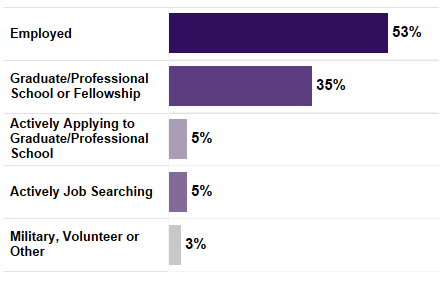Career Paths
The skills learned in studying anthropology can be applied to many professions and interests. Students gain insight into a variety of problems, from international development issues to the relationship between culture and disease.
Life after graduation
Graduates enter such fields as health care, law, education, business and personnel management, advertising, market research, journalism, recreation, counseling, community development, international development, women’s services, museum work, radio and television, public relations, environmental services, government, forensics, and contract archaeology.
Students are also well prepared for an advanced degree:
- Students pursuing a medical degree have an important perspective on biological, social and cultural foundations of behavior.
- Students pursuing a master’s or PhD in anthropology or other social science field have historically been accepted into very competitive graduate programs.
Read profiles of students who have graduated with an Anthropology degree.
Many companies are eager to hire anthropologists like you! Check it out!
6 months Post Undergraduate Survey Data:Click here to learn about popular industies and professional associations.
Explore career pathways
Below, you can learn more about potential career paths for Anthropology graduates. Each pathway provides a list of relevant anthropology courses, related courses in other departments, field studies options, and minors or certificates that might be taken in conjunction with anthropology course work.


